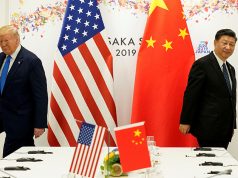Expressing affection can be expensive. Spending on heart-shaped gifts, romantic cards, chocolates and flowers (other gifts are available) to celebrate Valentine’s Day has reached close to £1 billion in the UK.
So the value of Valentine’s to retailers seems clear enough. But just how valuable is the annual ritual to consumers? What return can you expect for the money you invest in that bouquet of roses or candle lit meal?
Broadly speaking, and depending on your relationship status, buying into Valentine’s Day traditions suggests two possible scenarios. You might be sending a card or gift to a potential partner to inform them of your interest; or you might be giving something to your current partner to remind them of your continuing love.
Research suggests that both options have intrinsic economic value.
For those seeking to express interest, sending a card is like dipping your toe into what economists might refer to as the “marriage market” — the search for someone you like, who likes what you have to offer in return.
This search can happen smoothly, with plenty of information about your potential match, or it can be paved with obstacles, where you may not know much about who is available, and learning about potential partners takes time.
So suppose you are searching for a partner, and comprehensive information about potential matches is not freely available. What do you do?
One option might be to put all your hopes into meeting someone on your daily journey to work. You pray that one day, just like in the movies, you will simply bump into “the one”.
A second option might be to focus your search on single work colleagues, or people you know socially, and send Valentine’s Day cards to those you are attracted to.
The option with the highest chance of success is the second one. You are using reliable information — knowledge of who is single. And sending a card to them can provide them with important information about you — that you’re also single, and that you’re interested. This is why research suggests that sending a Valentine’s Day card can be a logical investment of time and money.
‘Match quality’
Fast forward five years or so and imagine you are happily married to the recipient of one of those cards. Is it worth repeating the gesture now that you’re settled down together?
Economists think of marriages or partnerships as having an inherent “match quality”, which reflects how good (or bad) your relationship is — and the likelihood of you breaking up.
If match quality falls below the level of happiness you might expect to have if you were to leave, a separation may well follow. But many studies also show that match quality is malleable — that it can change, for better and indeed for worse, over time.
You can invest in trying to improve match quality in various ways. It might be starting a family, sharing hobbies and interests, or gestures such as cooking a special meal or exchanging gifts on the 14th day of February. Improving your match quality directly reduces the probability of a separation.
Then there’s the question of commitment — the willingness to stay in a relationship rather than walking away. And again, gestures can make a difference.
Imagine you have just started a new job, and your employer asks you to complete an intensive training session in your free time, for a skill that would only be useful for that particular role. If you expect to hold the job for a long period, you might happily invest your time. But if your employer is struggling financially and redundancy is on the cards, you are much less likely to agree to perform the task.
Relationships work in a similar way. People are more prepared to invest in things like having children or buying a house together if they expect the relationship to last. Given that commitment is not guaranteed by a marriage certificate, people need to find other ways to signal their continued devotion.
Celebrating Valentine’s Day is one way of making such a signal. It can show faith in your shared commitment, signify that you wish to continue investing in the relationship and improve match quality, further stabilizing the partnership.
So even if deep down you think that Valentine’s Day has become over commercialized and meaningless, research suggests it makes good economic sense to send that card.![]()
Selma Wather, Senior Lecturer in Economics, University of Sussex. This article is republished from The Conversation under a Creative Commons license. Read the original article.










